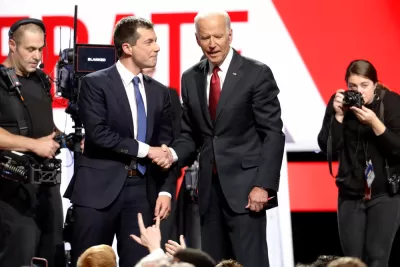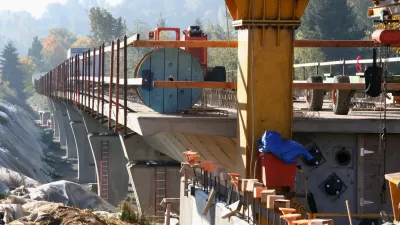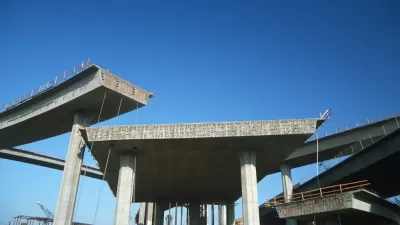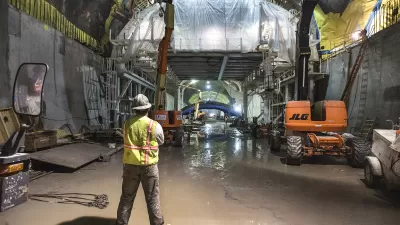The policy whiplash from the Obama administration to the Trump administration and now to the Biden administration continues.

"The U.S. Department of Transportation (U.S. DOT) today published a Notice of Funding Opportunity (NOFO) to apply for $1 billion in Fiscal Year (FY) 2021 discretionary grant funding through the Rebuilding American Infrastructure with Sustainability and Equity (RAISE) grants," according to a U.S. DOT press release published on April 13, 2021.
The new RAISE grants will replace the BUILD grants of the Trump administration, which, in turn, replaced the TIGER grants of the Obama administration. The grant programs collectively have awarded over $8.935 billion in grants to projects in all 50 states, the District of Columbia and Puerto Rico since 2009, though each iteration of the discretionary grant funding program has taken a different on spending priorities. While TIGER helped fund a wave of streetcar projects and other urban mobility projects, BUILD focused on rural road projects. Now RAISE promises to advance equity and sustainability.
"Projects for RAISE funding will be evaluated based on merit criteria that include safety, environmental sustainability, quality of life, economic competitiveness, state of good repair, innovation, and partnership. Within these criteria, the Department will prioritize projects that can demonstrate improvements to racial equity, reduce impacts of climate change and create good-paying jobs," according to the press release.
The application deadline is set for July 12, 2021, and the U.S. DOT is hosting a series of informational webinars in the interim.
Hat tip to Jeff Davis, senior fellow at the Eno Transportation Center, for sharing the news of the RAISE program on Twitter.

Alabama: Trump Terminates Settlements for Black Communities Harmed By Raw Sewage
Trump deemed the landmark civil rights agreement “illegal DEI and environmental justice policy.”

Planetizen Federal Action Tracker
A weekly monitor of how Trump’s orders and actions are impacting planners and planning in America.

Why Should We Subsidize Public Transportation?
Many public transit agencies face financial stress due to rising costs, declining fare revenue, and declining subsidies. Transit advocates must provide a strong business case for increasing public transit funding.

Understanding Road Diets
An explainer from Momentum highlights the advantages of reducing vehicle lanes in favor of more bike, transit, and pedestrian infrastructure.

New California Law Regulates Warehouse Pollution
A new law tightens building and emissions regulations for large distribution warehouses to mitigate air pollution and traffic in surrounding communities.

Phoenix Announces Opening Date for Light Rail Extension
The South Central extension will connect South Phoenix to downtown and other major hubs starting on June 7.
Urban Design for Planners 1: Software Tools
This six-course series explores essential urban design concepts using open source software and equips planners with the tools they need to participate fully in the urban design process.
Planning for Universal Design
Learn the tools for implementing Universal Design in planning regulations.
Caltrans
Smith Gee Studio
Institute for Housing and Urban Development Studies (IHS)
City of Grandview
Harvard GSD Executive Education
Toledo-Lucas County Plan Commissions
Salt Lake City
NYU Wagner Graduate School of Public Service





























